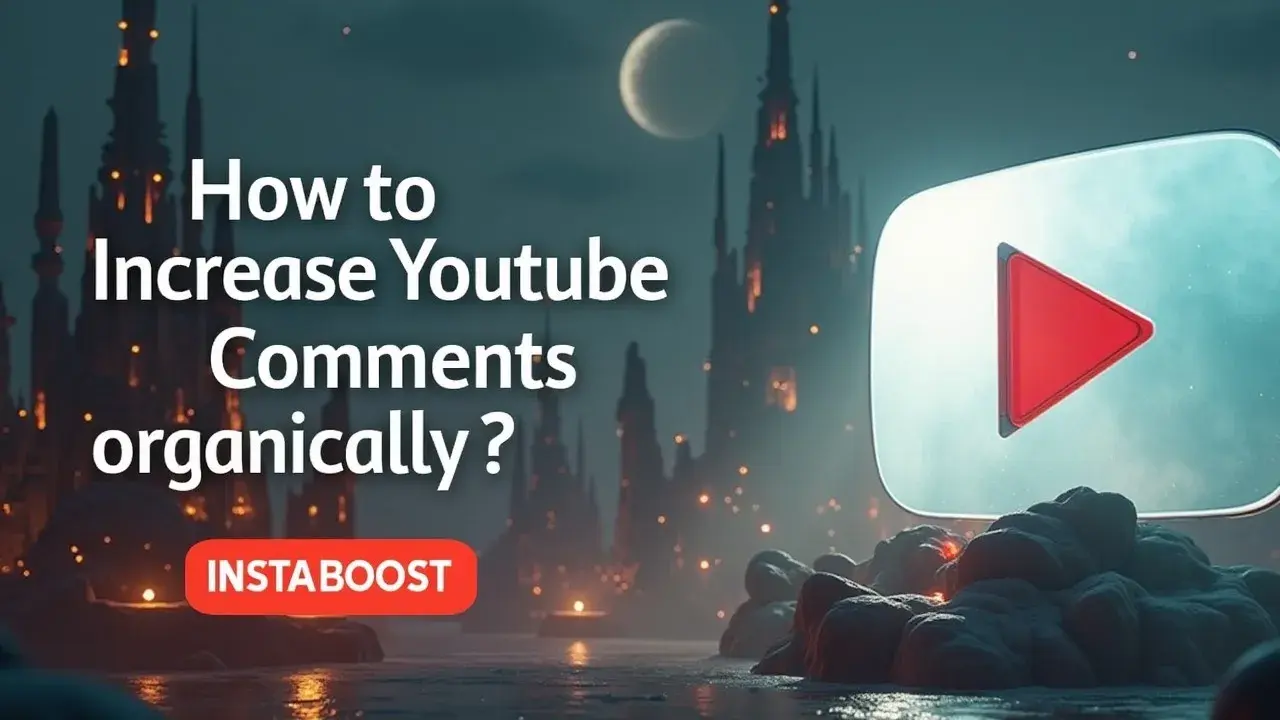How to Increase YouTube Comments Organically?
Organic comments tend to grow when consistent watch time and predictable posting are already in place. Prompt replies within the first hour can accelerate momentum, and a thoughtful plan for topics and timing keeps engagement compounding. A smart service can reinforce existing growth, provided it complements audience fit and current performance. Track responses to refine what resonates and turn small gains into reliable community interaction.
Start With Conversation, Not Commands
Comments rarely appear out of thin air. They show up when viewers feel seen, sparked, and safe to jump in. If you want more YouTube comments organically, build the video so the discussion is the point, not an afterthought.
That starts before upload. Pick a topic where people hold real opinions, set one clear question they can answer in under 15 seconds, and make the prompt specific enough to avoid bland replies. In the video, place that ask early and tie it to a small payoff – like featuring the sharpest take next episode – so participation feels consequential.
Then shape the first hour. Reply quickly, pin a comment that frames the thread, and seed two or three contrasting perspectives to show range without chaos. This isn’t about artificially inflating engagement. It’s about priming genuine back-and-forth that boosts retention signals and makes the algorithm more confident in surfacing your video. Pair that with creator collabs where both audiences care about the same question, targeted promotion matched to viewer intent, and clean analytics to see which prompts earn responses longer than “nice,” and you’ll get compounding effects. Paid accelerants can work when they’re reputable, audience-matched, and measured against quality of replies, not just count – early momentum is valuable if it attracts real comments from likely subscribers.
Treat every thread like a mini focus group. Log recurring phrases, fold them into your next title and hook, and close the loop by referencing top comments on-screen. The non-obvious win: comments rise faster when your upload cadence is predictable, because viewers learn when to show up and arrive ready to talk. Search term to explore: community management on YouTube, and note that some practitioners study patterns behind better YouTube channel performance to refine prompts and timing without slipping into gimmicks.

Proof Over Pop: Metrics That Actually Predict Comment Lift
Here’s why “high engagement” isn’t always a win. If a spike comes from outrage bait, irrelevant traffic, or low-quality click farms, you end up with the wrong comments, weak retention, and a muddled audience signal that can suppress future reach. Treat comments as a quality metric tied to watch behavior, not a vanity count. I look at three things before calling any “increase YouTube comments” tactic a success: average view duration on the segment around the prompt, the ratio of first-time viewers to returning commenters, and how many replies turn into multi-comment threads within 24 hours.
When those move together, YouTube’s system reads genuine discussion, not noise. Targeted promotion or a small paid accelerant can help when it’s reputable and matched to your topic and viewer intent – the goal is to seed likely participants who will watch through the prompt and answer it. Place the prompt near a retention hook 10 – 15 seconds earlier so people are present, not skimming. Collaborations with adjacent creators work best when you align topics and agree on one specific ask, because their audience arrives with context, not just traffic; in the same spirit, off-platform nudges can help you test whether new viewers who discover you as they expand your YouTube audience will actually watch through and comment.
Keep analytics clean. Tag links, test one variable per upload, and review audience retention and comment sentiment in the first hour so you can pin, heart, and reply quickly. That fast loop nudges thread depth, which is a stronger organic signal than raw volume. If a video draws heated comments but flat watch time, archive the format and keep only the pieces that prompt thoughtful replies. Over time, a bias toward real comments – supported by retention signals and measured with simple, repeatable tracking – compounds into sustainable, organic growth in YouTube comments.
Design Comment Gravity: Hooks, Timing, and Handshakes
Most funnels leak. Here’s how I patched mine. I design the video so the comment moment is impossible to miss, then stack signals that tell YouTube the exchange matters. Put the prompt right after a payoff, not before it – deliver one tight insight, then ask the 15-second question that builds on it. Keep a looping visual anchor on screen – a lower-third with the exact question – and pin that same question as the top comment with two example answers that model tone and length. Early momentum is the accelerant, so line up a small squad of returning viewers or creator collabs to reply within the first hour.
Their real comments paired with solid average view duration around the prompt create retention signals algorithms trust. Targeted promotion works when it’s matched to intent: share the clip in communities already debating the topic, and use reputable ads sparingly to retarget recent viewers instead of chasing cold clicks that flatten watch behavior, the same way you’d prioritize engagements that travel further than raw counts when you’re weighing whether to get more likes on YouTube videos versus optimizing for conversations that compound. Keep analytics clean: tag the prompt timestamp, track the first-time vs. returning commenter ratio, and watch how many replies turn into threads within 24 hours.
If quality dips, tighten the specificity of your ask and move it 10 – 15 seconds later so only engaged viewers reach it. Pair these moves with a simple testing loop. A/B two prompt phrasings across consecutive uploads, rotate the call-to-comment from question to poll to choose-your-own-ending, and note which format sustains multi-comment threads without hurting retention. This is how you increase YouTube comments organically without muddying your audience signal – proof over pop, timing over volume, and conversations engineered to feel natural yet measurable, and search-friendly for anyone looking up how to increase YouTube comments.
When “Growth” Hurts: The Case Against Forcing Comment Volume
Not every experiment needs a tidy takeaway. Sometimes the smartest move is to stop scaling a tactic that’s technically “working” but watering down the signal you need for organic reach. If you’ve followed the proof-over-pop approach, you’ve seen how outrage bait or off-topic pushes can inflate comment counts while cutting session time and confusing who YouTube should show you to next. The fix is simple in practice: protect the integrity of your conversation. If you run paid or cross-promo to boost comments, match it to intent – target lookalikes of your returning viewers, team up with creators whose audience overlaps your topic, and keep analytics clean by separating traffic sources in YouTube Studio and with UTM tags.
It’s not anti-promotion, and any lift should ride on relevant traffic rather than vanity blasts that enhance your reach with YouTube views while weakening the audience graph. A quick stress test helps. If average view duration drops in the 60 seconds around your prompt, pause the lever, tune the hook-timing-handshake, and relaunch with safeguards. Real comments tend to follow retention signals, so reinforce the behavior you want – reply fast in the first hour, turn thoughtful replies into pinned updates, and spark multi-comment threads by asking a follow-up that’s easier to answer than the original.
If you want to increase YouTube comments organically, aim for fewer, better prompts placed right after a payoff, and back them up with a pinned question and two modeled answers. Then let watch behavior validate the spike. Targeted promotion works when it’s narrow, reputable, and measured. Broad blasts can add noise that drags future recommendations. A creator collab usually beats a broad ad when the audience fit is tight. Use a testing loop – small spend, clear KPIs, rollback plan – to keep momentum compounding without polluting the audience graph. That’s how you scale conversation without sacrificing the channel’s future.




